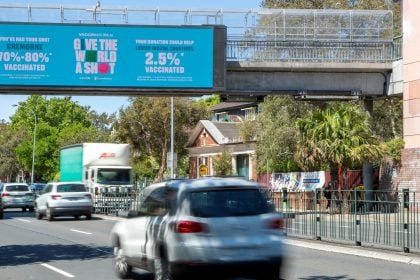Bevan Shields, editor of The Sydney Morning Herald has penned a note demanding an on-air apology from ABC after its Media Watch show criticised the SMH’s “Red Alert” series of articles.
The three-part Red Alert series saw SMH international political editor Peter Hartcher and foreign affairs and national security correspondent Matthew Knott claim, amongst other things, that war with China was bound to happen in less than three years.
The series was an “examination of the most pressing national security challenges facing Australia,” wrote Shields.
“[The series]has generated mixed feedback, which I welcomed in my weekly note to subscribers last Friday. Some of you didn’t like the series and others viewed it a brave assessment of the threats posed by the Chinese Communist Party and of Australia’s lack of preparedness to prevent these threats from spilling over into war.”
However, the SMH and its China reporting were roundly criticised by former Prime Minister Paul Keating.
When Knott asked whether Keating would criticise China’s treatment of Uyghur Muslims and pro-democracy activists in Hong Kong — not just Labor and journalists — Keating replied:
“You ought to do the right thing and drum yourself out of Australian journalism.”
He also said the SMH was a “newspaper without integrity.”
“If I were you mate, I’d hide my face and never appear again.”
Keating also described Hartcher as a “psychopath” and “maniac.”
Shields said that Knott “rightly” told Keating the SMH was very proud of its journalism.
However, Shields saved his real ire for Paul Barry, presenter of ABC’s Media Watch.
Nine Newspapers’ series on war with China within three years is criticised as hysterical and hyperbolic. #MediaWatch pic.twitter.com/fzR5ZtC7QB
— Media Watch (@ABCmediawatch) March 14, 2023
Barry said that the articles, published in The Age, as well as the SMH, featured a comic book sketch of jets flying from China towards Australia. Barry also said that Hartcher was a “well-known China hawk” and Peter Jennings, one of the experts the journos leaned on for information, “has made a habit of predicting that conflict with China is coming.”
“There was no contrary view or shading of the possibilities,” said Barry.
In the eight-minute-long Media Watch section, Barry quoted Nine’s Chris O’Keefe pointing out that the Australian Strategic Policy Institute, where Jennings is a senior fellow, is funded by “The Australian Defence Force, Lockheed Martin, Thales, and Boeing.”
Media Watch also quoted rival defence experts, such as Paul Bisley, who said the pieces were “irresponsible journalism” and “hyperbolic” and that the three-year timeline for war was “at odds” with any “serious analysis of PRC interests, capabilities, or incentives.”
Barry also quoted an expert saying that there were basic errors in one of the graphics used by papers showing who was a US treaty ally and who was not. The graphic even said that Guam and Diego Garcia were US allies when they are, in fact, US territories. He also said that it looked like the papers took the graphic from a 2018 German publication.
In his note, Shields said that “Media Watch professes to be the arbiter of good and bad reporting, but Monday night’s episode failed to adhere to the most basic standards of journalism because the program did not bother to ask us for a right of reply before putting the segment to air.
“Media Watch also conveniently omitted that Keating had a long history of pro-China commentary. And while accusing us of warmongering, Media Watch failed to mention a two-part series published by the ABC in February by global affairs editor John Lyons titled ‘What war with China would look like for Australia’. Funny, that.
“We will write to the ABC demanding an on-air apology for Media Watch’s hypocrisy and poor standards.”








